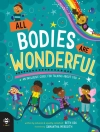Presenting couple-based interventions uniquely tailored to the mental health needs of military and veteran couples and families, this book is current, practical, and authoritative. Chapters describe evidence-based interventions for specific disorders—such as posttraumatic stress, depression, and substance abuse—and related clinical challenges, including physical aggression, infidelity, bereavement, and parenting concerns. Clear guidelines for assessment and treatment are illustrated with helpful case examples; 18 reproducible handouts can be downloaded and printed in a convenient 8 1/2′ x 11′ size. The book also provides essential knowledge on the culture of military families and the normative transitions and adjustments they face.
สารบัญ
I. Empirical and Conceptual Foundations
1. Couple-Based Interventions for Military and Veteran Families: Evidence and Rationale, Candice M. Monson and Douglas K. Snyder
2. Understanding the Effects of Military Life and Deployment on Couples and Families, James A. Martin and Michelle D. Sherman
3. A Framework for Accessing Resources for Military and Veteran Couples and Families, Laurie B. Slone, Matthew J. Friedman, and Barbara Thompson
4. Transitioning to and from Deployment, Kevin S. Beasley, Shelley M. Mac Dermid Wadsworth, and June Behn Watts
II. Evidence-Based Interventions
5. Enhancing Parenting in Military and Veteran Families, Ellen R. De Voe, Ruth Paris, and Abigail Ross
6. Infidelity and Other Relationship Betrayals, Douglas K. Snyder, Donald H. Baucom, Kristina Coop Gordon, and Brian D. Doss
7. Intimate Partner Violence, Richard E. Heyman, Casey T. Taft, Jamie M. Howard, Alexandra Macdonald, and Pamela S. Collins
8. Posttraumatic Stress Disorder and Its Comorbidities, Candice M. Monson, Steffany J. Fredman, and David S. Riggs
9. Depression, Mark A. Whisman and Steven L. Sayers
10. Substance Use Disorders, Jeremiah A. Schumm and Timothy J. O’Farrell
11. Combat-Related Traumatic Brain Injury, Shirley M. Glynn
12. Grief and Loss, David M. Scheider, Lance Sneath, and Thomas C. Waynick
III. Integration and Implications
13. Integration and Implications for Clinical Practice and Research, Douglas K. Snyder and Candice M. Monson
APPENDICES, Philippe Shnaider, Valerie Vorstenbosch, and Sonya G. Wanklyn
Appendix A. Resources for Military and Veteran Couples and Families
Appendix B. United States Military Ranks
Appendix C. Military Structure and Unit Sizes
Appendix D. U.S. Department of Veterans Affairs and Organizational Structure
Appendix E. Common Terms and Abbreviations
เกี่ยวกับผู้แต่ง
Douglas K. Snyder, Ph D, LMFT, is Professor of Psychological and Brain Sciences at Texas A&M University, where he also served as Director of Clinical Training for 20 years. Dr. Snyder has engaged in clinical practice and training of couple therapists since the 1970s, and is a clinical member of the American Association for Marriage and Family Therapy (AAMFT). He is coauthor or coeditor of several books for mental health professionals and general readers. Dr. Snyder has served as editor of the Clinician’s Research Digest and as associate editor of the Journal of Consulting and Clinical Psychology and the Journal of Family Psychology. He is a recipient of the Distinguished Contribution to Research in Family Therapy Award from AAMFT, the Distinguished Contribution to Family Psychology Award from Division 43 (Society for Couple and Family Psychology) of the American Psychological Association (APA), and the Distinguished Psychologist Award from Division 29 (Society for the Advancement of Psychotherapy) of APA.
Candice M. Monson, Ph D, is Professor of Psychology at Toronto Metropolitan University in Toronto, Ontario, Canada. A Fellow of the American and Canadian Psychological Associations and the Royal Society of Canada, she is a recipient of the Traumatic Stress Psychologist of the Year Award from the Canadian Psychological Association and the Distinguished Mentorship Award from the International Society for Traumatic Stress Studies. Dr. Monson is well known for her research on interpersonal factors in traumatization and the development, testing, and dissemination of treatments for posttraumatic stress disorder (PTSD), including cognitive processing therapy and cognitive-behavioral conjoint therapy for PTSD.












